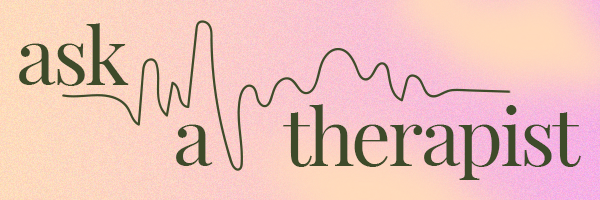Ever wondered what you'd say to a therapist, given the chance? We asked Dr Sheri Jacobson, a retired psychotherapist with over 17 years' clinical experience and the founder of Harley Therapy London Psychologists, for advice on the things we worry about in private.
Have a question for a therapist? Submit yours for Sheri.
Question:
Just like every year, my clothes have stopped fitting me properly in December and my mum has started talking about her diet plans for January, expecting me to want to join in. My weight always fluctuates and I’ve been working hard to accept it instead of trying to change it, because dieting always makes me feel worse, not better. But it’s hard to stick to after the holidays when it feels like talk about 'new year, new me' is everywhere. How can I stop the message that I need to lose weight from getting to me?
AdvertisementADVERTISEMENT
Luci, 25
Answer:
In general, it's important to find ways to make our focus not negative but positive. Here that should mean not losing weight but strengthening our physical and psychological wellbeing. This takes the whole concept away from our appearance and readjusts its sights on health. This is how we can begin to build a better relationship with our bodies. For example, that could mean thinking of the benefits of food in terms of how we can gain from it: how it is giving us energy, how it helps our organs, how it makes us feel internally. This eases the psychological pressure of fixating on our weight and shape especially in a negative way.
It's true that the new year is often a marker that can crystallise change. It can be used as a point in the calendar to set goals that can be really, really helpful for some people. But the problem can emerge not only when the goals are negative, not positive, but also when they are short-term, unrealistic targets instead of slow-moving, long-term lifestyle changes. In other words, "I want to lose x pounds" or "I want to be thin". Those goals are a lot more difficult, if not impossible, to sustain. There's a concept in CBT called SMART goals that's relevant here. If you want to achieve something, it should be Specific, Measurable, Achievable, Realistic and Timely. And a lot of these diets don't fit those categories.
Plus, in my clinical work, I found that diets rarely work for clients. As you mention yourself, they just make people feel worse, not better. Instead, the kinds of changes that can be positive from a New Year's Resolution are lifestyle-related ones, which are sometimes very small. But from there they can snowball into bigger impact. These changes also often start internally and then as a consequence the external might change, but once again that's not the goal at all. The goal is health and emotional wellbeing.
AdvertisementADVERTISEMENT
Setting boundaries with those who might push you in different directions needs practice and is best when they are fairly straightforward: "Alright, thanks, I got this covered" or "I appreciate your concern but I'm gonna see what I can do on my own" or "I'm not really looking at that at this moment". The best solution really is to find your own language that suits your particular situation, to show that you've got this covered on your own, you don't really want to join their campaign and you don't appreciate the comments either.
It can be hard to navigate comments that are body shaming or focus on a negative attitude to your body. Other people's comments wouldn't hurt us if we didn't give them the charge that we do but it's incredibly hard to stop that. It requires a steady process of reframing what others would say to us and recognising that perhaps it's an issue that they're projecting onto us. Maybe weight is a very loaded concept for them and therefore they're taking it out on us in a way that's got nothing to do with us.
That's not always the case though. If they do genuinely mean the comments about us, the more we can see that it's not helpful for us to take it seriously, the more we can almost bat it back like an invisible tennis racket. You're making it clear: "I'm not carrying this, it's not helpful for me to sit with this and let this stew." Plus, it is often the case that for many of us, self shame is arguably worse than the shaming from others. So if we can develop a sense of acceptance of our own situation and learn to embrace ourselves, that can in turn make us a little bit more resilient to the comments of others.
